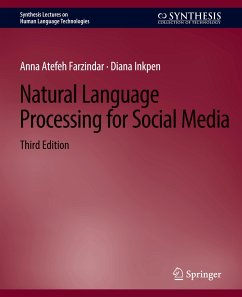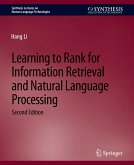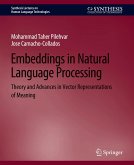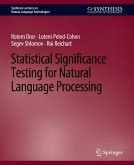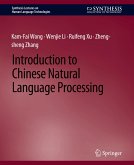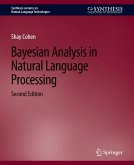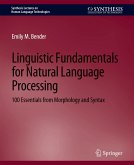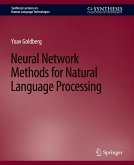In recent years, online social networking has revolutionized interpersonal communication. The newer research on language analysis in social media has been increasingly focusing on the latter's impact on our daily lives, both on a personal and a professional level. Natural language processing (NLP) is one of the most promising avenues for social media data processing. It is a scientific challenge to develop powerful methods and algorithms that extract relevant information from a large volume of data coming from multiple sources and languages in various formats or in free form. This book will discuss the challenges in analyzing social media texts in contrast with traditional documents.
Research methods in information extraction, automatic categorization and clustering, automatic summarization and indexing, and statistical machine translation need to be adapted to a new kind of data. This book reviews the current research on NLP tools and methods for processing the non-traditional information from social media data that is available in large amounts, and it shows how innovative NLP approaches can integrate appropriate linguistic information in various fields such as social media monitoring, health care, and business intelligence. The book further covers the existing evaluation metrics for NLP and social media applications and the new efforts in evaluation campaigns or shared tasks on new datasets collected from social media. Such tasks are organized by the Association for Computational Linguistics (such as SemEval tasks), the National Institute of Standards and Technology via the Text REtrieval Conference (TREC) and the Text Analysis Conference (TAC), or the Conference and Labs of the Evaluation Forum (CLEF).
In this third edition of the book, the authors added information about recent progress in NLP for social media applications, including more about the modern techniques provided by deep neural networks (DNNs) for modeling language and analyzing social media data.
Research methods in information extraction, automatic categorization and clustering, automatic summarization and indexing, and statistical machine translation need to be adapted to a new kind of data. This book reviews the current research on NLP tools and methods for processing the non-traditional information from social media data that is available in large amounts, and it shows how innovative NLP approaches can integrate appropriate linguistic information in various fields such as social media monitoring, health care, and business intelligence. The book further covers the existing evaluation metrics for NLP and social media applications and the new efforts in evaluation campaigns or shared tasks on new datasets collected from social media. Such tasks are organized by the Association for Computational Linguistics (such as SemEval tasks), the National Institute of Standards and Technology via the Text REtrieval Conference (TREC) and the Text Analysis Conference (TAC), or the Conference and Labs of the Evaluation Forum (CLEF).
In this third edition of the book, the authors added information about recent progress in NLP for social media applications, including more about the modern techniques provided by deep neural networks (DNNs) for modeling language and analyzing social media data.

